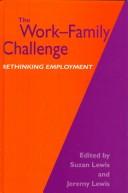| Listing 1 - 2 of 2 |
Sort by
|
Book
ISBN: 9780520258440 0520258444 9780520258433 0520258436 9786613422583 0520943392 1283422581 Year: 2009 Publisher: Berkeley : University of California Press,
Abstract | Keywords | Export | Availability | Bookmark
 Loading...
Loading...Choose an application
- Reference Manager
- EndNote
- RefWorks (Direct export to RefWorks)
Even as they see their wages go down and their buying power decrease, many parents are still putting their kids' material desires first. These parents struggle with how to handle children's consumer wants, which continue unabated despite the economic downturn. And, indeed, parents and other adults continue to spend billions of dollars on children every year. Why do children seem to desire so much, so often, so soon, and why do parents capitulate so readily? To determine what forces lie behind the onslaught of Nintendo Wiis and Bratz dolls, Allison J. Pugh spent three years observing and interviewing children and their families. In Longing and Belonging: Parents, Children, and Consumer Culture, Pugh teases out the complex factors that contribute to how we buy, from lunchroom conversations about Game Boys to the stark inequalities facing American children. Pugh finds that children's desires stem less from striving for status or falling victim to advertising than from their yearning to join the conversation at school or in the neighborhood. Most parents respond to children's need to belong by buying the particular goods and experiences that act as passports in children's social worlds, because they sympathize with their children's fear of being different from their peers. Even under financial constraints, families prioritize children "feeling normal". Pugh masterfully illuminates the surprising similarities in the fears and hopes of parents and children from vastly different social contexts, showing that while corporate marketing and materialism play a part in the commodification of childhood, at the heart of the matter is the desire to belong.
Child consumers --- Consumer behavior --- Consumption (Economics) --- Parent and child --- Social aspects --- Child consumers. --- Consumptiemaatschappij. --- Eltern --- Kinderen. --- Konsumverhalten --- Ouderschap. --- Parent and child. --- Verbraucherverhalten. --- Social aspects. --- California. --- Kalifornien. --- Verenigde Staten. --- Sociology of the family. Sociology of sexuality --- National consumption --- Child and parent --- Children and parents --- Parent-child relations --- Parents and children --- Children and adults --- Interpersonal relations --- Parental alienation syndrome --- Sandwich generation --- Children as consumers --- Consumers --- Consumer demand --- Consumer spending --- Consumerism --- Spending, Consumer --- Demand (Economic theory) --- Behavior, Consumer --- Buyer behavior --- Decision making, Consumer --- Human behavior --- Consumer profiling --- Market surveys --- ambivalence. --- american children. --- american culture. --- american society. --- belonging. --- childhood. --- children. --- commodification of childhood. --- consumer culture. --- consumer desires. --- consumerism. --- corporate marketing. --- desire to belong. --- economic downturn. --- economy of dignity. --- family. --- feeling normal. --- financial constraints. --- inequality. --- low income parenting. --- market. --- material desires. --- materialism. --- parenthood. --- parents. --- social contexts. --- social desires. --- social inequality. --- social psychology. --- sociology of children. --- sociology.

ISBN: 0803974698 080397468X 9786612262852 1446280209 1282262858 1849207054 9781849207058 9781446280201 6612262850 9781282262850 9780803974685 9780803974692 Year: 1996 Publisher: London : SAGE,
Abstract | Keywords | Export | Availability | Bookmark
 Loading...
Loading...Choose an application
- Reference Manager
- EndNote
- RefWorks (Direct export to RefWorks)
'The Work-Family Challenge' takes a critical look at what is often referred to as 'family friendly' employment, and addresses the question of how to achieve the cultural change in organisations which meets the needs of the contemporary workforce.
Labour market --- Sociology of the family. Sociology of sexuality --- Corporate culture. --- Organizational change. --- Parental leave. --- Corporate culture --- Organizational change --- Parental leave --- #SBIB:316.356.2H1520 --- #SBIB:316.334.2A553 --- Gezin en beroep, werkmilieu --- Personeelsbeleid en loonbeleid, functieclassificaties --- Manpower planning. --- Work and family. --- Management Styles & Communication --- Management --- Business & Economics --- Family leave --- Infant care leave --- Leave for parenting --- Leave of absence --- Change, Organizational --- Organization development --- Organizational development --- Organizational innovation --- Organization --- Manpower planning --- Culture, Corporate --- Institutional culture --- Organizational culture --- Corporations --- Organizational behavior --- Business anthropology --- Sociological aspects --- Agilité dans l'entreprise --- Change [Organizational ] --- Changement dans l'organisation --- Changement organisationnel --- Congé parental --- Culture [Corporate ] --- Culture d'entreprise --- Culture d'organisation --- Culture de l'organisation --- Culture organisationnelle --- Développement organisationnel --- Entreprise [Culture d' ] --- Flexibilité organisationnelle --- Innovation organisationnelle --- Mémoire d'entreprise --- Mémoire de l'organisation --- Mémoire organisationnelle --- Organisatie--Wijzigingen --- Organisatiecultuur --- Organisation -- Changement --- Ouderlijk verlof --- Ouderschapsverlof --- Verlof [ouderschap ] --- Work and family --- Travail et famille --- E-books --- Families and work --- Family and work --- Families --- Dual-career families --- Work-life balance --- Manpower utilization planning --- Personnel management
| Listing 1 - 2 of 2 |
Sort by
|

 Search
Search Feedback
Feedback About
About Help
Help News
News